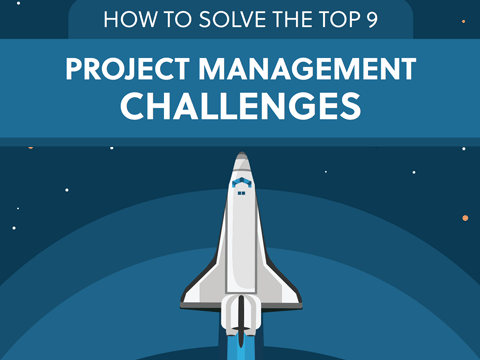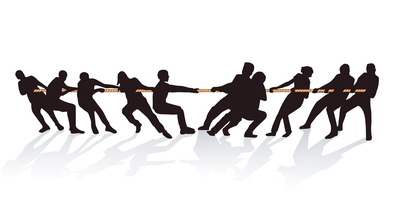Fights, war, battle, screaming matches—conflict is a constant presence in life. The pressure to deliver unique results on a short timeline adds to the pressure in the project management world. In fact, the Project Management Book of Knowledge (PMBOK) states: “Managing conflict is one of the biggest challenges a project manager faces.”
In any given project, you might have to use multiple conflict management techniques. In fact, you might already have a preferred way to solve conflicts—whether you’re aware of it or not. Even if that is the case, consider these methods the next time you face a conflict.
1. Exercise power
Yes, power is a way to solve conflict! However, this approach is best used sparingly or in situations where there are very high risks or dangers, such as staff safety. It begins with simply issuing a command to solve the conflict—and rests on the authority and confidence you wield in your position. If you’re curious to learn more about how power has been applied throughout history and today, read “The 48 Laws of Power” by Robert Greene.
2. Withdraw/avoid
“The supreme art of war is to subdue the enemy without fighting.” – Sun Tzu, The Art of War
The PMBOK Guide’s conflict management guidance includes “withdraw/avoid conflict management.” In my view, avoidance tends not to solve the problem very often. However, this approach is suggested for situations when you’ll have a better result by withdrawing in order to be better prepared. It’s also a great tactic for those prone to angry outbursts. Withdrawing or avoiding gives you time to calm down and think clearly about the problem.

3. Compromise
Compromise is one of the most popular ways to solve conflicts on projects. Each party gets their interests satisfied to a degree if the compromise is successful.
4. Call in the sponsor
Professionals know when to ask for help. And successful project management professionals are no different. If you truly feel the conflict is beyond your capability to solve, ask your project sponsor for help. Before any meeting, brief your sponsor on the situation and come prepared with at least two solutions of your own.
5. Appease
Much like power, appeasement can be misused as a conflict management technique. Appeasement is most effective in situations when conceding a point is inexpensive for you but beneficial to the other person or team. As you progress through a project, reflect on how often you use appeasement to solve a conflict. Overuse of this technique can harm your reputation (and cause more work for you and your project team).
6. Solve the underlying problem, not the symptom
Not all conflicts are what they appear. When you’re presented with a conflict, take the time to thoroughly understand what is causing it. For example, instead of repeatedly solving conflicts over late delivery, you can look for a systematic cause (e.g., lack of training, poor communication, unclear expectations or goals).
7. Delegate
As the project manager, you have a great deal of work and responsibility to manage. By delegating conflict resolution to a trusted lieutenant, you give that person a chance to grow. Of course, delegation does not eliminate your responsibility, so choose wisely.

8. Acknowledge the person first
Some conflicts occur because a person’s ideas and feelings are not being acknowledged as important. By taking the time to acknowledge your team member’s problem, you could prevent any ensuing conflict from occurring.
Try not to cut off people before they’re able to express their feelings. Slow down!
9. Call a meeting
With the right preparation and ground rules, meetings are an effective way to solve project conflict. You can ask each party to present their side or make a short presentation. The formal structure of a meeting helps people structure their thoughts. By getting everyone in the same room you have a better chance of coming to a resolution sooner than later.
10. Listen
Did you know that John D. Rockefeller, one of the most successful businessmen in American history, had a reputation for listening in meetings? One of Rockefeller’s maxims was: “Success comes from keeping the eyes open and the mouth closed.” You might already know about the importance of active listening skills, but we can all use a reminder to do better.
Being an attentive listener is similar to acknowledgment. By gathering more information through listening, you’ll be better equipped to solve conflicts.
11. Use a mediator
Some conflicts are simply overwhelming. If your conflict involves a large contract that is not fulfilled, you might have to call in outside help. That could take the form of a lawyer or a mediator. Once again, keep in mind that you want to manage your resources wisely. If a lawyer can solve your conflict with an hour or two of work, that may be the smartest way to go.
Conflict in the workplace is an ever-present fact. By implementing effective conflict management practices, you can turn your challenges and disagreements into positive resolutions for everyone.
If you liked this article and would like to master some of the most common project management challenges, download our eBook, How to Solve the Top 9 Project Management Challenges.








